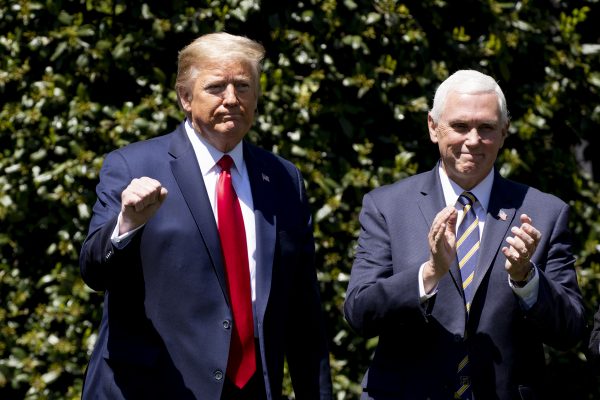The strongman approach to governing is appealing to those in America who have been left behind by society; who want to recapture some glory of the past and sustain primacy into the future. This has led to the undermining of the institutions at home that make America exceptional and the international institutions that it has championed and protected that gave the world a golden period of advancement in living standards.
Great power competition with a rising China has helped to unite politically-divided Washington. China makes an easy target with its different system of government, increasingly assertive posture and its many actions that don’t help itself in the eyes of the international community. The United States feels let down that China did not become more like it since being let into the global system.
But China is large and is crucial to solving the world’s biggest challenges from climate change to pandemics. The world relies on China’s economy being open for development and prosperity. China isn’t a country that can be put back in its box or decoupled from without cost: it is 18 per cent of global population, the world’s second largest economy and its largest trader.
The United States and China appeared to be on a collision course well before the COVID-19 health and economic crisis. Instead of bringing them together, with the rest of the world, to deal with this unprecedented global catastrophe, it appears to be exacerbating the downward spiral.
Joseph Nye argues in the first of this week’s features that ‘even if the United States remains the largest power, it cannot achieve many of its international goals acting alone’ because of the information revolution and globalisation. But the Trump administration is failing because ‘its national security strategy (and budget) is focussed almost entirely on great power competition, particularly with China’.
Nye argues for American ‘power with’ others, not ‘power over’ others. And he urges us to ‘think in terms of power to accomplish joint goals’. The Trump administration has been using power over others, allies and adversaries alike, to renegotiate trade deals, squeeze concessions and redefine engagement — all unilaterally.
Perhaps America will move to power with others, instead of over them, to find a way out of the COVID-19 crisis. After all, as Winston Churchill famously said, ‘you can always count on the Americans to do the right thing after they have tried everything else’. The crisis is yet to peak in the United States and the already dire health, social and economic ramifications are set to get worse.
Although appealing, Nye’s call for US power ‘with’ others may simply be too idealistic, far removed from what we are seeing out of Trump’s America. And if President Trump is a symptom, not a cause, of the problems in the United States, it’s difficult to see a significant shift in Washington anytime soon.
We are left to deal with the world as it is, not as we think it ought to be.
The idea of sharing power ‘with’ rather than ‘over’ others is simply not part of the Trump mindset or approach — everything he has done as president, and especially in this crisis, points in the other direction. While a future Democratic president may bring warmer tones to the rhetoric and more cooperative sentiments to some US policies abroad, the next elected president will have to contend with the forces that brought Trump to power, forces that will continue to turn America inward.
Just as the world needs to deal with China as it is, not as we want it to be, the world also needs to deal with the United States as it is, not as it once was or what we would wish it to be.
Nye’s proposal for a new Marshall plan in the wake of COVID-19 is laudable. Yet the world has to deal squarely with the reality that international cooperation has taken a big hit during this crisis and the probability of the proposal gaining traction in the United States is low.
Cooperation and multilateralism are certainly not beyond repair. Nye explains that ‘instead of competitive propaganda, leaders could articulate the importance of “power with” rather than “over” others, and set up bilateral and multilateral frameworks to enhance cooperation’.
With the United States vacating leadership and undermining the multilateral system, where will leadership come from?
In another feature this week Alex Rouse and Adam Triggs explain that modelling shows Asia is the main beneficiary from international cooperation and coordinated economic action.
South Korea, India, Indonesia and Australia benefit more than other G20 members from coordinated fiscal stimulus, for example. And ‘political benefits also disproportionately flow to Asian economies’, where the G20 and international cooperation provide political reinforcement for taking constructive action at home.
So Asian countries have the incentive and opportunity to step up as global leaders. And most have more incentive to manage a productive relationship with China given it’s a close neighbour.
Leadership is hard. It needs to start at home but it can be built up in smaller groups. The smaller groups in Asia include the most populous countries in the world and some of the largest economies, richest nations and greatest potential, where recovery from the COVID-19 crisis looks likely to happen first.
Perhaps Asia can show what power with others looks like.
Follow East Asia Forum’s special COVID-19 crisis series from experts in-country and around the world. As with all our publications, these essays are double-blind peer reviewed so you can expect the usual authoritative analysis, made accessible.
The EAF Editorial Board is located in the Crawford School of Public Policy, College of Asia and the Pacific, The Australian National University.

